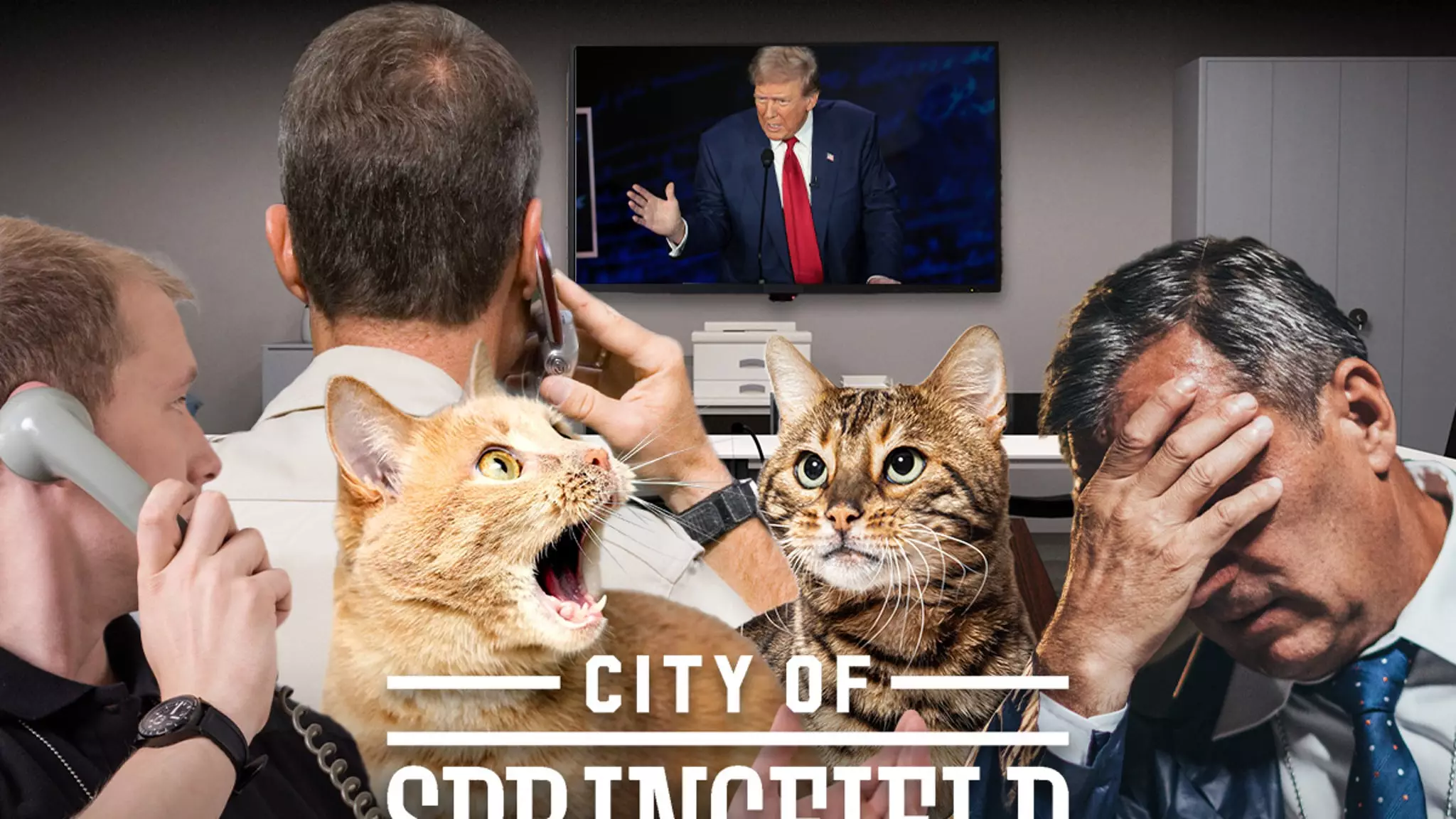In an age where information travels faster than ever, it is alarming how easily misinformation can infiltrate public consciousness and incite unnecessary panic. Recently, former President Donald Trump ignited a wave of concern in Springfield, Ohio, by suggesting that Haitian immigrants were consuming local pets, including cats and dogs. This dubious claim, presented during a debate, has led to a bewildering uptick in calls to the local police department, overwhelming their resources and diverting attention from genuine criminal investigations.
The Springfield Police Department, already handling a significant volume of daily calls, has reported that inquiries about this unfounded theory have doubled. Officers have been left grappling with an influx of questions regarding the supposed epidemic of pet consumption, detracting from their ability to address actual crimes. It’s concerning to witness law enforcement resources being redirected towards a conspiracy theory that lacks any credible basis. The department emphasized that there have been zero reports of animal killings or consumption related to immigrants, underscoring the disconnect between Trump’s statements and reality.
Fact-checking plays a crucial role in maintaining the integrity of public discourse. In the same debate, moderator David Muir highlighted statements from local authorities who confirmed that no pets had been harmed. Contrary to Trump’s sweeping allegations, the only noteworthy incident involving animal consumption in Ohio involved a native Ohioan in Canton and not a Haitian immigrant in Springfield. This factual discrepancy indicates a dangerous trend where sensational claims can easily overshadow the truth, leading to false narratives that can harm communities.
The Role of Social Media
Furthermore, the impact of social media amplifies the fallout of such conspiracies. Donald Trump Jr.’s dissemination of a 911 call about Haitian migrants allegedly seen carrying dead geese further muddied the waters. He presented this as evidence supporting his father’s claims, neglecting to clarify that these incidents had no proven correlation to the immigration debate. This suggests a troubling pattern where individuals leverage platforms to spread misinformation without accountability, prioritizing sensationalism over factual reporting.
The community’s response, driven by heightened anxiety stirred by these allegations, reflects a societal tendency to react impulsively to fear-inducing rhetoric. Engaging in discussions fueled by conspiracies diverts attention from the real issues facing communities, like crime or public safety. The Springfield Police Department not only has to address these calls but also to rebuild public trust, which may waver as a result of such outlandish claims.
While free speech allows for the dissemination of various opinions, the ramifications of irresponsible statements from influential figures can be severe. It is imperative that communities remain vigilant against misinformation, seeking clarity from credible sources rather than succumbing to fear-mongering that leads to harmful consequences for law enforcement and community solidarity.


Leave a Reply